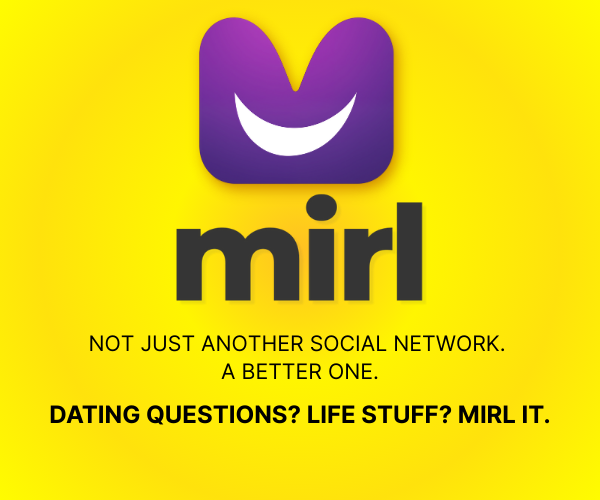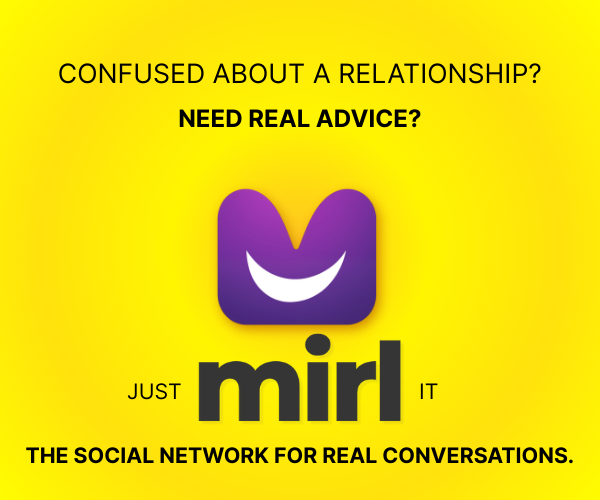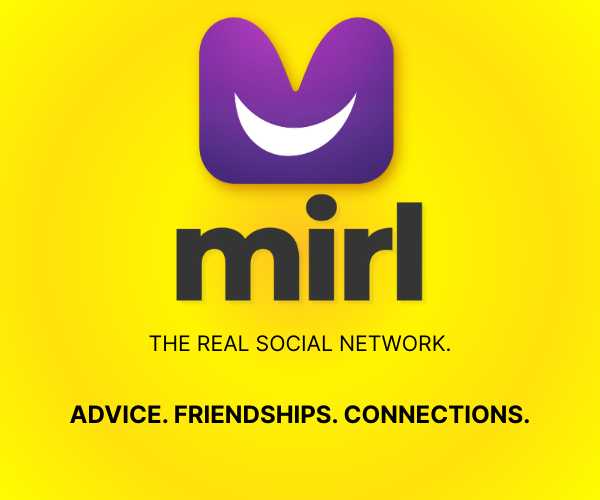Twin Flame Separation: Why It Happens, 38 Signs, Red Flags & the Psychology

Twin flame separation feels like heartbreak on a soul‑deep level. Learn the signs, psychology, and healing steps for this intense connection.
Imagine the most intense romantic high you’ve ever had, the kind where just hearing their name feels like an emotional lightning strike. Now imagine that same person suddenly disappearing, pulling away, or shutting you out. That’s twin flame separation.
It’s not just a breakup, it’s the emotional equivalent of someone yanking your soul’s plug out of the wall.
For those who believe in twin flames, this isn’t just about losing a relationship. It’s about losing the other half of your soul, or at least, that’s how it feels.
Psychologically, the brain treats this as both a deep attachment loss and an identity crisis.
In other words: your nervous system doesn’t just go into breakup mode, it goes into existential freefall.
[Read: 10 Painful Stages of Heartbreak & Grief All of Us Go Through After a Breakup]
What exactly is twin flame separation?
A twin flame is believed to be the other half of your soul, not in the cheesy rom‑com way, but in the “your deepest self in human form” kind of way.
[Read: Twin Flame: What It Is, 41 Signs & Ways to Recognize Your Twin Soul]
According to the idea, one soul splits into two bodies, each person holding a mirror up to the other’s most beautiful qualities and, inconveniently, their deepest flaws. When you meet them, it can feel like coming home… and being hit by a freight train at the same time.
That mirroring isn’t all starry‑eyed romance. Your twin reflects your deepest wounds, insecurities, and shadow traits right back at you. This is why twin flame relationships can be blissful one moment and chaotic the next.
Separation happens when the connection becomes so intense that one or both people can’t handle it.
This often sparks the famous runner‑chaser dynamic, where one person withdraws while the other desperately tries to close the gap. Psychologists might call this a cycle of activation and protest behaviors, similar to what’s observed in anxious‑avoidant attachment pairings.
[Read: Avoidant Attachment Style: The Types, 32 Symptoms & How to Love One]
📚 Source: Mikulincer, M., & Shaver, P. R. (2016). Attachment in Adulthood: Structure, Dynamics, and Change
The important thing to understand: twin flame separation is often less about mystical punishment and more about self‑preservation.
One or both partners need space to heal, grow, and stabilize before the connection can be healthy.
Why does twin flame separation happen?
Separation doesn’t always mean the connection was fake or doomed. Often, it’s the soul’s way, or psychology’s way, of saying “time‑out.”
The intensity of twin flames can push emotional buttons that were wired long before you met, triggering old wounds that need healing in solitude. The pain isn’t random, it’s often the exact thing you need to address before you can have a healthy relationship, with anyone.
[Read: 38 Signs & Traits of a Happy, Healthy Relationship & What It Should Look Like]
1. The timing isn’t right
Twin flame connections are often described as magnetic but chaotic. If one or both people aren’t emotionally ready, the intensity can feel threatening rather than safe. This is why so many twin flame bonds end up with a runner‑chaser phase. [Read: Right Person, Wrong Time? 28 Scenarios & Secrets to Time Things Right in Love]
2. Both need individual healing
Twin flames tend to surface each other’s unhealed trauma, childhood wounds, attachment fears, unresolved grief.
Separation gives each person the space to do their own emotional laundry without drowning in the other person’s pile too.
3. Emotional imbalance
If the connection becomes lopsided, one person overly dependent, the other distant, the emotional push‑pull can become exhausting. This imbalance often triggers one partner to retreat entirely.
4. Fear of facing the shadow self
Your twin flame can make you feel painfully exposed. Sometimes that vulnerability feels unbearable, leading to withdrawal as a form of self‑protection.
5. Over‑identification with the connection
When your entire identity starts revolving around your twin flame, losing them, even temporarily, can feel like losing yourself. That kind of dependency can be suffocating for both people. [Read: How to Focus on Yourself in a Relationship & Avoid Losing Yourself]
6. External life circumstances
Jobs, distance, family responsibilities, or conflicting life paths can physically and emotionally pull twin flames apart, even when the emotional bond remains strong.
📚 Source: Jung, C. G. (1959). Aion: Researches into the Phenomenology of the Self
Common signs you might be in twin flame separation
Not every silent patch or cold spell means you’re in twin flame separation.
But if the connection once felt like an emotional supernova and now it’s radio silence or a messy rollercoaster, there are some unmistakable patterns that point toward this stage.
1. Communication fizzles or disappears entirely
One day you’re swapping long, vulnerable messages that feel like soul poetry, and the next, it’s crickets. This isn’t just your everyday ghosting, it comes after a deep emotional bond, making the silence cut far deeper.
The sudden drop can leave you feeling abandoned and confused, often replaying every past conversation in your head, searching for clues. [Read: Ghosted After the First Date: Why Dates Ghost & What You Need to Do]
2. The runner‑chaser dance takes over
You might notice one person withdrawing hard while the other turns into a relentless pursuer. This pattern isn’t random; it’s classic in anxious‑avoidant attachment pairings.
The more one runs, the more the other chases, creating a loop that’s exhausting for both and usually accelerates the need for separation. [Read: Stop Chasing Him: Why Guys Run & Why You Shouldn’t Chase Them]
3. Fading synchronicities
When you first met, the universe seemed to send signs, repeating numbers, dream overlaps, uncanny coincidences. These “cosmic winks” felt like a breadcrumb trail guiding you together.
During separation, these moments often fade, leaving you feeling disconnected not just from them, but from the mysterious magic of the connection itself. [Read: 34 Signs the Universe Wants You to Be with Someone & the Nudges of Destiny]
4. Emotional triggers go off constantly
Arguments erupt over small things, or old wounds feel freshly torn open by the simplest interactions.
This happens because your twin flame mirrors back your most vulnerable, unhealed parts. The emotional overload can become unbearable, making retreat feel like the only safe option.
5. Sense of inexplicable emptiness
This isn’t regular loneliness. It’s an aching void, almost physical, like a limb has gone missing. It’s common to feel ungrounded or even lose interest in things that once mattered because the separation feels like a part of you is missing.
6. You feel pulled toward distractions
Instead of facing the gaping emotional wound, you might find yourself overworking, dating impulsively, binge‑watching endlessly, or numbing with food or substances.
This is your nervous system trying to escape from the intensity of the loss. [Read: 21 Steps to Find Yourself When You’ve Lost Your Way & Feel Hopeless]
7. Dreams and intuition shift
You might have once had vivid dreams involving your twin flame or moments where you felt their energy strongly.
During separation, these experiences can vanish or feel distant, leaving you unsure if you’re losing your connection altogether.
8. Mood swings without obvious cause
You feel fine one moment and then plunged into sadness, irritability, or anxiety the next. These emotional swings often coincide with subconscious reminders of your twin flame, a song, a smell, a place.
9. Feeling spiritually disconnected
If your twin flame connection once felt like a spiritual awakening, separation can feel like someone dimmed your inner light. Practices like meditation or prayer may suddenly feel flat, like the energy has drained away.
10. Difficulty forming new connections
Even if you try dating or making new friends, everything pales in comparison. No one seems to match the depth or intensity you felt with your twin flame, making it harder to genuinely invest in others.
11. Overthinking and obsessing
Your mind loops through what‑ifs, old conversations, and hypothetical scenarios. This obsessive thinking is often your brain’s attempt to find control in a situation where you feel powerless. [Read: How to Stop Obsessing Over Someone: The 22 Things You MUST Do]
12. Feeling their emotions from afar
Many people report sensing their twin flame’s moods, even without contact. You might suddenly feel sadness, anxiety, or bursts of joy with no clear reason, only to learn later that they were going through something similar.
13. Physical symptoms of grief
Separation can trigger physical effects like fatigue, appetite changes, restlessness, or a heavy feeling in your chest. This isn’t just poetic, intense emotional pain genuinely impacts the body’s stress systems.
14. Avoidance of places or reminders
You may find yourself steering clear of places, songs, or activities that remind you of them because the emotional hit feels too sharp.
15. A deep sense of unfinished business
Perhaps the most defining sign is the gnawing feeling that your story together isn’t truly over, even if logic says otherwise. This lingering sense keeps you emotionally tied to them, making true detachment harder. [Read: Soul Connection: What It Means, 8 Types and 16 Signs to Find & Recognize It]
The psychology beneath twin flame separation
It’s tempting to think twin flame separation is purely a mystical event, the universe’s way of hitting pause. But from a psychological lens, what’s happening inside you during this phase is both intense and deeply human.
The twin flame dynamic often acts like a magnifying glass for attachment styles, trauma patterns, and self‑identity struggles. [Read: Attachment Styles Theory: 4 Types and 19 Signs & Ways You Attach To Others]
Attachment style activation
When you connect with someone on such an intense emotional level, your attachment system, the deep, primal wiring that governs how you connect and bond, kicks into overdrive.
If you have an anxious attachment style, separation can feel unbearable, leading to panic, overthinking, and desperate attempts to reconnect. If you lean avoidant, you may withdraw even harder to protect your autonomy and emotional safety.
📚 Source: Hazan, C., & Shaver, P. (1987). Romantic love conceptualized as an attachment process
Trauma‑bonding vs. spiritual destiny
The intensity of twin flame relationships can mimic the highs and lows of trauma bonds, cycles of deep connection followed by withdrawal, which flood your brain with dopamine and cortisol.
This can feel addictive, making you believe you can’t live without the other person. The tricky part is telling the difference between an authentic soul connection and a trauma‑fueled attachment loop.
📚 Source: Carnes, P. (2010). The Betrayal Bond: Breaking Free of Exploitive Relationships.
Identity disruption
Twin flames often awaken parts of yourself you didn’t know existed. When separation happens, it can feel like losing access to those awakened parts, leading to confusion about who you are without them. This identity disturbance can trigger existential anxiety and a loss of direction in life. [Read: 12 Twin Flame Stages, How Each Feels, Why It Matters & How to Tell Them Apart]
The role of projection
A lot of what you “see” in your twin flame may actually be a projection of your own inner world, your hopes, your wounds, your potential.
In separation, those projections collapse, forcing you to face what’s truly yours and what belonged only to your image of them.
Self‑worth on trial
Separation often shakes the foundation of your self‑esteem.
If your worth has become entangled with being “chosen” or validated by your twin flame, the break can feel like a verdict on your value. This is why self‑love work is not just a cliché here, it’s survival.
How to heal and transform during twin flame separation
Healing from twin flame separation isn’t about erasing the bond or “getting over it” in the traditional breakup sense.
It’s about using the separation as a sacred pause, a time to reclaim yourself, stabilize your emotions, and grow into the person you’re meant to be, whether or not reunion happens. [Read: Soul Ties: What It Is, 15 Types & 74 Signs and Ways to Strengthen or Break It]
1. Give yourself permission to step back
It’s easy to think you should fight tooth and nail to maintain the connection, but often the healthiest thing you can do is embrace space.
No‑contact or limited‑contact isn’t punishment; it’s a boundary that allows both of you to breathe. [Read: No Contact Rule: What It Is, 29 Secrets to Use It & Why It Works So Well]
2. Commit to inner work
Your twin flame often triggers deep wounds from childhood or past relationships. This is the perfect time for shadow work, journaling, therapy, inner child healing, or EMDR, to help you integrate those parts of yourself instead of projecting them onto someone else.
📚 Source: van der Kolk, B.A. (2014). The Body Keeps the Score
3. Strengthen your self‑love muscles
If your sense of worth feels tied to your twin flame’s attention, you’ll want to build it from the inside out. Practice affirmations, invest in your passions, and celebrate small wins to remind yourself that you are whole, with or without them.
4. Create daily grounding rituals
Meditation, nature walks, breathwork, or creative outlets help regulate your nervous system and bring you back into your body when separation anxiety hits.
The goal isn’t to stop thinking about them overnight but to give your mind and body safe anchors.
5. Surround yourself with healthy connections
Friends, family, and supportive communities remind you that love exists in many forms. These bonds help refill your emotional reserves so you’re not tempted to lean entirely on one person for your sense of safety. [Read: 26 Whys & Ways to Surround Yourself with Positive People & Remodel Your Life]
6. Reframe the narrative
Instead of seeing separation as abandonment or cosmic cruelty, try viewing it as preparation. This mindset shift turns pain into a growth catalyst, helping you see lessons instead of just loss.
7. Stay open to the unknown
Healing doesn’t mean closing the door forever, nor does it mean waiting endlessly. It means becoming so grounded in yourself that whether reunion happens or not, you are still whole, happy, and free.
📚 Source: Neff, K.D. (2011). Self‑Compassion: The Proven Power of Being Kind to Yourself
Twin flame or just intense attraction?
The tricky thing about twin flame separation is that the signs can sometimes overlap with what happens when you’re deeply infatuated with someone, or even when you’re caught in an unhealthy attachment loop.
When the chemistry is intense and the connection feels fated, it’s easy to put a spiritual label on it. But before you decide you’ve met your “other half,” it’s worth reflecting: [Read: What Happens Spiritually When You Sleep With Someone? 24 Spiritual Truths]
1. Is the connection balanced?
Twin flames are said to challenge you, yes, but they also grow with you. If the relationship is mostly one‑sided longing or chasing, it might be more about unmet emotional needs than cosmic destiny.
2. Is there mutual emotional availability?
Even in the early stages, a real twin flame connection involves reciprocity. If one person is consistently unavailable or disinterested, the connection might be more projection than partnership.
3. Are you idealizing them?
It’s normal to see the best in someone you’re drawn to, but if you’re ignoring glaring incompatibilities or red flags, your mind may be weaving a soulmate story to avoid letting go. [Read: Real Soulmates: What It Is, How It Works, 59 Secrets & Signs to Find Yours]
4. Are you losing yourself in the idea of them?
If your identity, happiness, and self‑worth hinge entirely on the hope that this person is your twin flame, take a pause. Healthy connections, spiritual or otherwise, should add to your life, not consume it.
Red flags & cautionary notes during twin flame separation
Not every intense connection is healthy, and not every separation is just “spiritual preparation.”
Sometimes, the twin flame label can be used to excuse patterns that are toxic or even abusive.
Here’s what to watch for.
1. Emotional manipulation masked as destiny
If someone uses the idea of being your twin flame to guilt‑trip you, control your actions, or keep you from setting boundaries, that’s not love, it’s manipulation.
True twin flame dynamics should never require you to sacrifice your mental health for the sake of the connection.
2. Justifying harmful behavior
Cheating, lying, or repeated disrespect doesn’t become acceptable just because you share a “cosmic bond.” If the connection is meant to last, it will withstand honesty, respect, and accountability.
3. Cult‑like influence
Some communities and coaches promise to “reunite” you with your twin flame, often for a price, while pushing strict rules or isolating you from loved ones.
This is a huge red flag, as seen in high‑profile cases like Twin Flames Universe, which has been accused of coercive control and emotional exploitation.
📚 Source: TIME Magazine. (2023). Inside the Twin Flames Universe Controversy.
4. Losing your autonomy
If you find yourself abandoning your values, ignoring your needs, or silencing your voice to keep the connection, it’s a sign the bond has slipped into unhealthy territory. Love should expand your life, not shrink it.
5. Constant anxiety and instability
It’s normal to feel some emotional turbulence in a deep relationship. But if you feel perpetually on edge, unsafe, or like you’re walking on eggshells, that’s your nervous system telling you the connection is harming more than helping.
6. Confusing obsession with love
Healthy love allows for space, self‑care, and balance. If your connection feels more like an unshakable compulsion that drains your joy, it may be more about attachment wounding than divine destiny. [Read: Obsessive Love Disorder: What Causes It, 21 Signs & How to Get Over It]
A real twin flame connection will challenge you, yes, but it won’t require you to abandon your self‑respect, health, or independence in the process.
Twin flame separation Is an invitation to come home to yourself
Twin flame separation can feel like the cruelest twist of fate, a love so rare, yet ripped away just as it blooms.
But here’s the truth most people miss: the separation is not a punishment. It’s an invitation.
An invitation to return to yourself, to stand on your own two feet, and to learn that your wholeness never depended on someone else holding it together.
Yes, the ache is real. The longing is real. But so is the opportunity to grow into a version of yourself that you might never have met without this catalyst.
You may heal together in the future, or you may find your journey leads you in different directions. Either way, you will be stronger, wiser, and far more anchored in your own worth.
[Read: 25 Sexual Symptoms of a Soul Tie & the Passionate Truths Gluing You Together]
So if you’re in the thick of a twin flame separation right now, hold on. Breathe. Take the time to heal and reconnect with your own soul. Whether your twin flame walks back into your life or not, you are already complete, and that’s the real reunion you’ve been searching for all along.



















